Why does my car smell like gas?
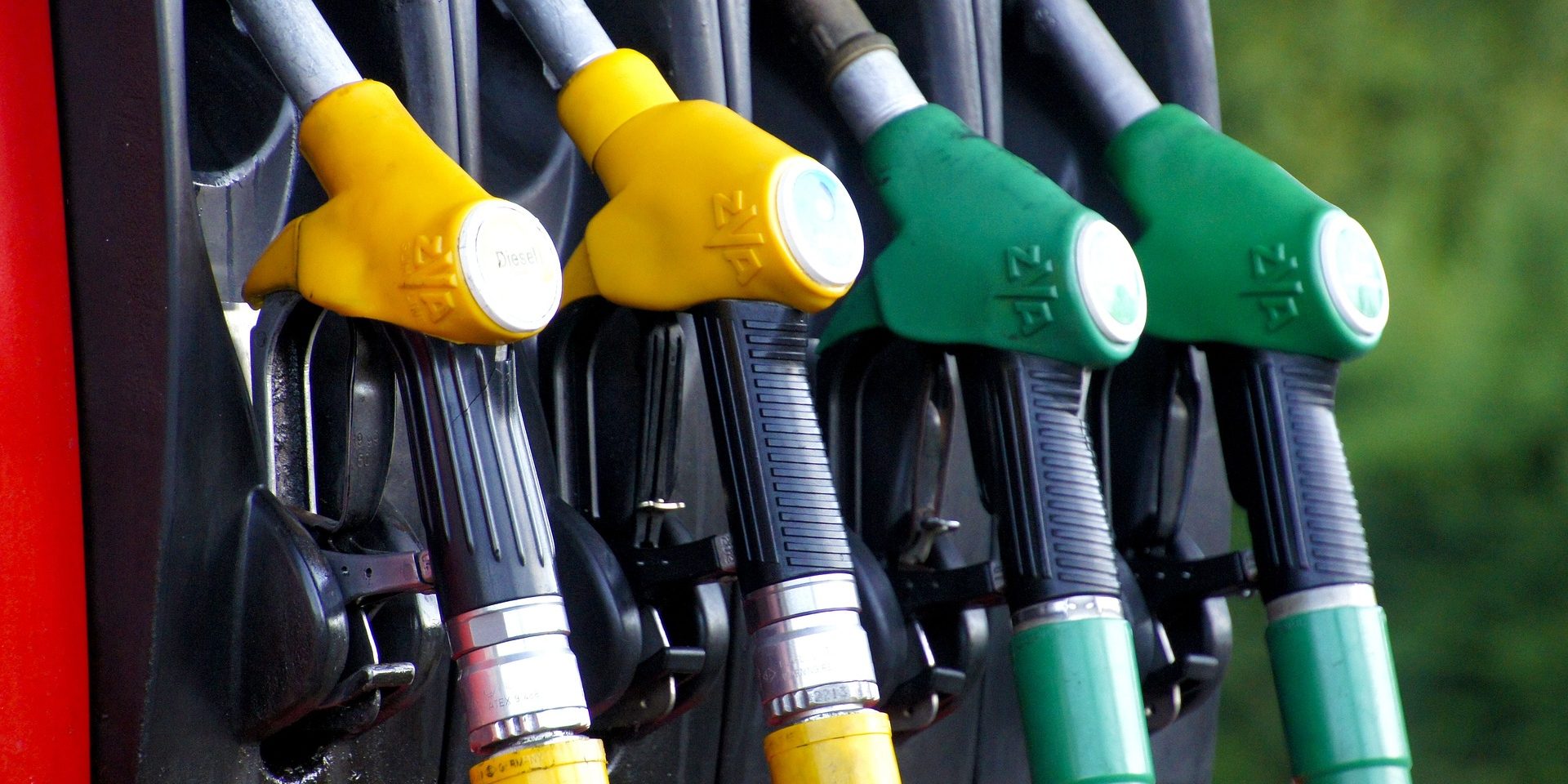
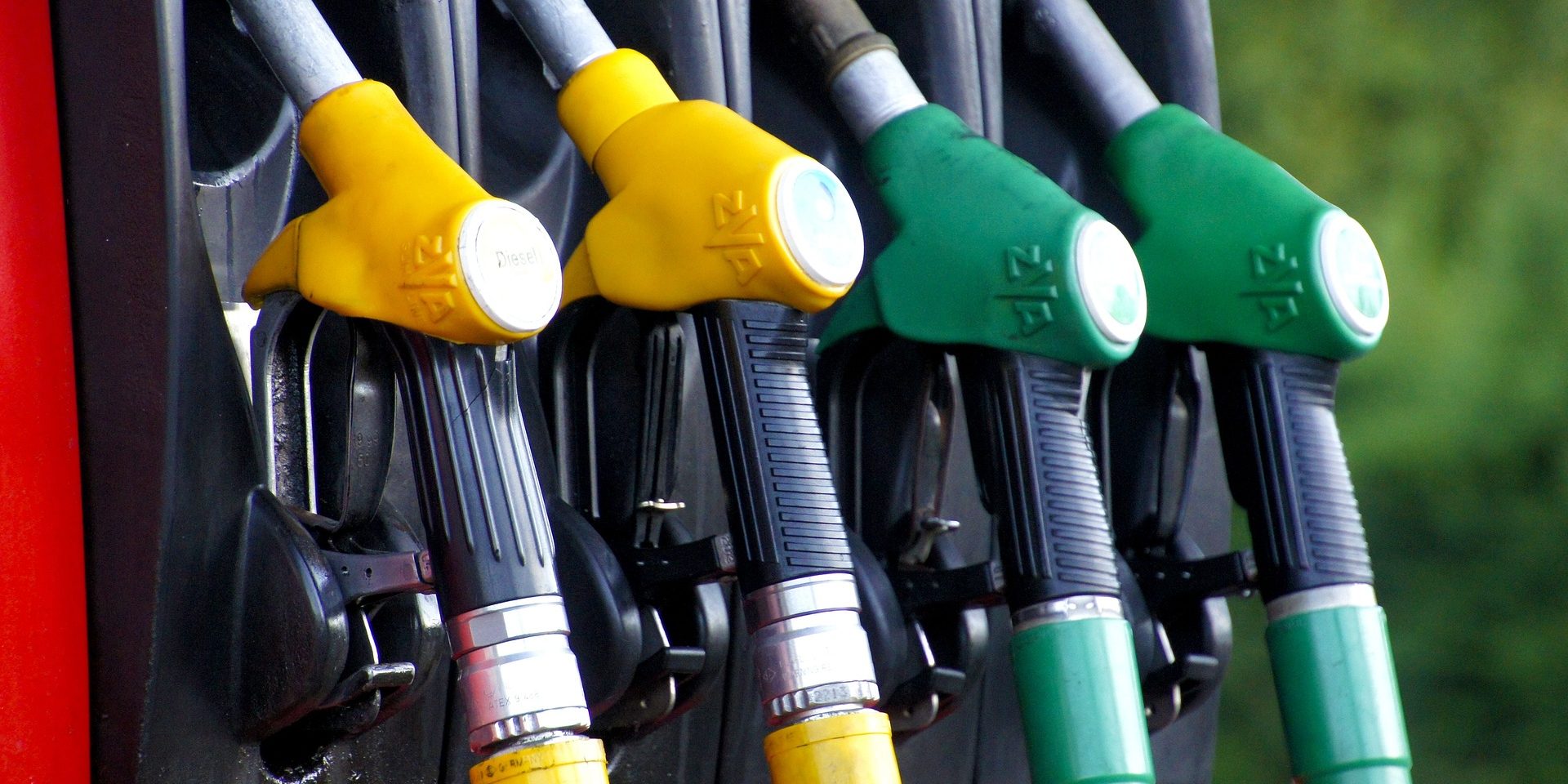
Why does my car smell like gas? It could be for one or more of the following reasons: fuel line issues, leaking fuel injector, evaporative emissions control system malfunction, faulty canister purge valve, damaged fuel tank or cap, clogged fuel filter, flooded engine, overfilled gas tank, and spilled gas during refueling.
Let’s take a look…
Fuel line issues
One common reason for the smell of gas in a car could be due to issues with the fuel delivery system. This can include leaks or damage to the fuel lines, fuel tank, or fuel injectors. Fuel line malfunctions can lead to a strong odor of gas inside the car and even pose safety hazards such as fire risks.
If there is a crack or hole in the fuel line, gasoline fumes may escape and accumulate within the car’s cabin. Additionally, if the fuel injector seals are worn out or damaged, they may leak gasoline onto hot engine components, leading to an unpleasant smell of gas. It’s crucial to address these issues promptly by visiting a qualified mechanic to avoid any further safety concerns.
It’s essential not only to recognize the causes of gas smells in cars but also understand their serious nature. A gas smell could indicate leaks that pose potential fire hazards within your vehicle and harm you and other passengers’ health. So always be swift and vigilant while dealing with such issues and take immediate action before it gets too late!
Leaking fuel injector
Fuel injectors are one of the components that help ensure your vehicle runs smoothly. However, if these injectors leak, they can cause unpleasant smells in your car. The leaking fuel injector can occur when the rubber seals on the injector break down or when the injector body cracks.
As fuel leaks from the damaged injector, it evaporates and creates a strong gas smell in your car. Other symptoms of a leaking fuel injector include reduced engine performance and black smoke from the tailpipe. If left unaddressed, it can lead to clogged catalytic converters or damage to the fuel system.
To prevent this issue, regular car maintenance is essential. Cleaning your fuel injectors every 30,000 miles and checking them for leaks can help avoid unwanted smells and costly repairs.
According to AAA, ignoring a gas smell in your car can be dangerous. Gas fumes in an enclosed space can cause nausea, headaches and dizziness – not to mention the risk of fire or explosion. It’s important to take care of any unusual gas smells immediately by seeking professional help from your mechanic.
Evaporative emissions control system malfunction
Gasoline odors inside the car can indicate a defective system that regulates evaporative emissions. This can happen if there’s a problem in the Evap Canister or any part of the fuel system. Leaking fuel supply lines may also result in noxious odors from gasoline seeping through the cabin air filter.
Some other factors that lead to bad smelling vehicles are clogged fuel injectors or malfunctioning oxygen sensors which do not burn gas efficiently. In addition, breather systems contribute to moving uncombusted gas out of the engine compartment and freeing up fresh air for combustion, may get stuck due to blockages or damage.
It’s essential to keep an eye on any age-deteriorated rubber hoses exhibiting wear because irregular gas discharge denotes significant damage in these cases. Routine maintenance reduces risks of ending up with the vehicle leaking hazardous materials and filling our environment with toxic fumes.
In 2006, automakers recalled millions of vehicles with faulty evaporative control systems displaying cracks in plastic pipes mostly located in corrosion zones. The defect produced gasoline smell and formed a risk of fire instead. Consumer groups authorities pressed manufacturers into giving better warranties and addressing this issue at no cost to drivers promptly.
Faulty canister purge valve
A malfunctioning component could have caused your car to emit gasoline fumes, signaling that something is amiss with its carbon canister purge solenoid. Typically, the more gas used, the higher the risk of vapor capturing in the system and releasing harmful fumes into the atmosphere. When a clogged or faulty canister is not working properly, fuel odor may be present inside and outside of the vehicle.
If you are smelling gasoline in your car’s cabin but no obvious leaks are found, then it might be time to investigate the EVAP (Evaporative Emission Control System) system, which works under pressure to maintain fuel vapors from going out into our environment. Symptoms like engine light showing up on the dashboard, low gas mileage or rough driving conditions can all indicate a problem with the purge valve.
Once I realized my car had a slight odor of gasoline emanating from it continuously every day while I was using it for longer periods compared to short distances. I took it to a mechanic who determined that there was an issue with my carbon canister purge solenoid causing fuel odor emissions around me even though there were no obvious signs of leakage. The mechanic made some adjustments and fixed my car promptly; it was such an efficient procedure that I would definitely recommend getting regular maintenance checks if you own a vehicle.
Damaged fuel tank or cap
A potential cause for a car emitting the smell of gas could be an impaired fuel tank or cap. The fuel system is designed to maintain proper pressure and prevent leaks, so any damage can expose hazardous fluids in uncontrolled ways. A cracked fuel tank or non-sealing cap may result in gasoline escape. To locate the source of this problem, a thorough visual examination may be necessary. If left unchecked, it may increase the chances of explosions or create a fire hazard.
If you notice the unpleasant odor increasingly becoming stronger even when your windows are up, it’s time to take a look at your fuel system. Cracks in your tank walls or sealant could pose a significant issue. It’s essential to follow up with professional services if you detect any leakage because trying to repair yourself can lead to catastrophic outcomes.
Worn-out hoses on breather lines might result in gasoline odors around cars too. Some contaminants present in gasoline can corrode plastic-like caps and hoses, causing cracks and leaks that release fumes into the air.
Pro Tip: In situations like these, it’s best to take the vehicle to qualified mechanics for repair since they’ll have specialized knowledge on how best to tackle this kind of problem.
Clogged fuel filter
When fuel flow is obstructed, strange odours can emanate from your car, resulting in various issues. In a vehicle’s fuel system, obstructions are typically caused by a clogged gasoline filter. Gasoline filters gather pollutants and impurities to keep the engine running smoothly. When they become clogged, the gas doesn’t reach the engine correctly, causing it to smell strange or foul. As a result, it requires immediate attention to avoid more serious problems.
A clogged fuel filter affects various parts of your vehicle and its performance. The car must work harder when the filter reduces optimal fuel flow through the engine, resulting in reduced efficiency. Misfiring and hesitation are two warning signs that could indicate a severe clogging issue that needs prompt attention; otherwise, it will undoubtedly lead to decreased power output or even mechanical harm.
It’s crucial to pay attention to how long your vehicle has gone without a tune-up before diagnosing an issue with your gas filter. Most manufacturers recommend replacing your gasoline filters after 30k miles as preventative maintenance, but depending on driving circumstances and usage pattern this time may vary widely.
According to CarCare.org: “Poorly maintained vehicles can impact air quality in our communities and contribute to respiratory related illnesses, particularly for children.” Therefore fixing smell issues resulting from blocked inlet pipe is essential not only for the health of one’s car but also for their wellbeing and that of others on the road.
Flooded engine
When an engine is overflooded with fuel, it can result in various problems. In most cases, this occurs due to a rich air-to-fuel ratio, which throws off the engine’s combustion process. As a result, the engine struggles to start, and might even emit a strong smell of gas from the exhaust.
The excess fuel causes the spark plugs to get wet, making it difficult for them to generate enough spark to ignite the fuel. The unburned gasoline residue then accumulates in the cylinders and eventually leaks into the exhaust pipe as raw fuel. This is often accompanied by black smoke coming out of the tailpipe.
To prevent this from happening, always ensure that your car has undergone regular maintenance. Keeping up with routine maintenance such as oil changes and fixing faulty parts like oxygen sensors can help avoid an overabundance of gasoline in the engine.
Studies show that leaving your car idle for long periods can also lead to an overflooded engine. Therefore if you plan on storing your vehicle for any extended period of time, be sure to start it up every few days and let it run for 10-15 minutes. This will help keep your gasoline-to-air ratio correct.
It is crucial to take care of your vehicle’s health regularly as a flooded engine can lead to more severe issues down the line. According to Consumer Reports Magazine survey’2019′, almost 40% of car engines failed due to poor maintenance or neglecting basic services.
Overfilled gas tank
When the gas tank is overfilled, excessive fuel gets into the evaporative emission control (EVAP) canister, leading to a gas smell. This could result from trying to squeeze in more gas than your vehicle’s tank capacity. The EVAP system’s primary function is to prevent fuel vapors from escaping into the atmosphere. An overfilled gas tank prevents this since it pushes the fuel towards the EVAP canister, causing gas smells both inside and outside. If you notice it, don’t leave it unattended, or you risk damaging your car’s engine.
Apart from damaging your car engine, an overfilled gas tank increases the chance of vapor lock by preventing proper airflow in and out of the fuel tank. Prolonged exposure to gasoline vapor may also cause health issues such as headaches and nausea. Furthermore, running a car with an overfilled tank may lead to a check engine light alert and impact its fuel economy.
Interestingly enough, according to Consumer Reports, a litre of gasoline expands by about 0.15% for every temperature increase by one degree Celsius. As such, an additional problem with overfilling the gas tank is that warmer temperatures will cause fuel expansion and when combined with a full tank already will create spillages that happen instantaneously or after parking for prolonged periods of time.
Spilled gas during refueling
Gas odour in the car can be a result of overflowed petrol during refuelling. Petrol spills are quite common and can be caused by rushing the fueling process, using an old or malfunctioning filling pump or not shutting down the engine while refilling. Even a small quantity of gas can cause a strong smell inside the vehicle, which will linger for a while if left unaddressed.
Continuing to drive with spilled gas can turn into a safety hazard because of the highly flammable nature of gasoline. The chance of ignition increases significantly, thereby posing harm to yourself and other road users. To avoid this ominous situation, you should immediately pull over your car, switch off the engine and step away from it.
Gas leaks might also be the root cause behind that awful odor as leaking petrol may seep into your car’s carpets or even under them creating long-lasting stench issues. To rectify this problem, seek professional assistance right away and avoid attempting it yourself as accidents could occur without proper knowledge.
Last summer, my neighbor got his car refuelled from a nearby station in haste resulting in spillage on his car’s rear end. Not only did his car smell like gas for days but also posed an imminent danger until he had cleaned it up properly by calling for assistance in time.
Signs and symptoms of gas smell in a car
To identify signs and symptoms of gas smell in your car, refer to this section with the title ‘Signs and symptoms of gas smell in a car’. Inside, you will find sub-sections describing strong gas odor inside and outside the car, headaches, nausea, and dizziness, poor fuel economy, and poor engine performance as possible solutions to your car smelling like gas.
Strong gas odor inside and outside the car
A pervasive smell of gasoline inside and outside the car can signify numerous mechanical issues that require immediate attention. The odor could indicate a fuel leak, damaged fuel injector, or even a malfunctioning catalytic converter.
The presence of gasoline vapors can lead to nausea, dizziness and headaches which is harmful to human health. It is advisable not to smoke in vehicles with strong gas odors or expose yourself too long to the fumes as it is highly flammable.
Another possible sign of gas smell in a vehicle is when you notice significant drops in your fuel economy or if you feel unstable steering. These could mean there’s a problem with your car’s air intake system, fuel injectors or leaks from any components leading to inefficient engine performance.
Do not ignore any unusual smells emanating from your vehicle. A strong gas odor should be taken seriously because it can quickly cause serious damage resulting in hazardous consequences for your safety and other people on the road. Take immediate action by visiting a trustworthy mechanic for forensic diagnosis and repair of the issue before it escalates.
Headaches, nausea, and dizziness
A noxious smell in a vehicle can result in several physiological symptoms. When exposed to an unpleasant odor, individuals may experience body sensations that include headaches, nausea, and dizziness.
- Headaches – A gas-like smell in a car is often associated with headaches. The reason behind it is due to the emission of toxic gases that affect our sensory nerves and lead to discomfort.
- Nausea – If an individual smells gasoline or any other chemicals while driving a car, they may experience symptoms such as nausea. It may be due to inhaling the fumes leading to irritation of the lining of the stomach and gastrointestinal tract.
- Dizziness – An overpowering gas smell is known to cause dizziness, leading to balance issues. The reason being exposure over time can damage nerve cells in our brain responsible for equilibrium.
Moreover, extended exposure can even lead to respiratory problems such as coughing, wheezing, or difficulty in breathing.
Pro Tip: It is crucial always to keep your vehicle well-ventilated and avoid running the engine while sitting inside for extended periods – this helps circulate fresh air through your car.
Poor fuel economy
The fuel efficiency of a vehicle can be adversely affected by several factors. One of the indicators that suggest poor fuel economy is a strong gas smell in the car’s interior or near its vicinity. This could mean that the car’s engine is consuming more fuel than required, which results in wastage and low mileage.
Additionally, an unbalanced air-to-fuel ratio can lead to incomplete combustion, creating harmful emissions such as carbon monoxide and hydrocarbons. These emissions can also result in decreased fuel economy and a strong gasoline odor.
If you notice these symptoms occurring frequently, it is advisable to get your vehicle checked by a professional mechanic. They can diagnose any issues and make necessary repairs to improve your vehicle’s gas mileage and prevent potential safety hazards.
Pro Tip: Regular maintenance of your vehicle’s engine can improve its performance and increase its fuel efficiency, leading to a longer life-span for your vehicle.
Poor engine performance
The underlying cause of decreased engine performance can be attributed to a variety of factors. This can result from a range of issues such as clogged fuel filters, limited air supply to the engine, or ignition system malfunction. The symptoms may include difficulty starting the engine, reduced power output, and increased fuel consumption. In such instances, it is crucial to seek professional assistance straightaway.
It is essential to address these issues as soon as possible since neglecting them can lead to further damage in the long run. A delayed response could end up costing more money and time and inconvenience in the future. It is crucial to identify the root cause of any changes in engine performance immediately.
One possible solution to preventing decreased engine performance is routine maintenance. Adhering to scheduled servicing will help keep your car’s performance at optimal levels as recommended by vehicle manufacturers. According to Consumer Reports, regular oil changes are critical preventative measures for your car’s longevity and performance.
How to address a gas smell in a car
To address a gas smell in your car, start with inspecting and cleaning the fuel system. It is a common cause of the smell. Replace damaged fuel components and repair or replace the evaporative emissions control system to ensure gas does not escape. Periodically check and replace the fuel filter. Proper maintenance of the engine and exhaust system can also eliminate the smell. Finally, drive safely to avoid overfilling or spilling gas during refueling.
Inspect and clean the fuel system
Inspecting and cleaning the fuel system can be one of the best ways to address a gas smell in your car. Regular inspection and cleaning of the fuel system is crucial in maintaining optimal performance and preventing potential hazards.
Here is a 4-step guide on how to inspect and clean the fuel system:
- Locate the Fuel System: You can find your car’s fuel system by checking under the hood, near the engine. Ensure that you follow all safety protocols while handling this potentially hazardous component.
- Inspect Components: Once you locate the fuel system, conduct a thorough visual inspection of its components. Check for any loose, cracked, or damaged parts that may cause leaks. Replace any defective components as necessary.
- Clean Components: Use a specialized cleaner such as Fuel Injector Cleaner to remove built-up dirt, debris, or contaminants from various components of the fuel system. Properly dispose of old cleaner according to local regulations.
- Test Your Vehicle: After completing the inspection and cleaning processes, start your vehicle and observe for any lingering odd gas smells or other strange behavior. Visit an auto mechanic if you still have issues.
It is essential to note that different cars come with different types of fuel systems. Research extensively before attempting any inspection or repair yourself. Additionally, it would be best if you only trusted skilled professionals with complex repairs.
A true story says that uncleaned tankers caused strong gasoline scent experiences all over town during one summer until someone called out maintenance crews for review. The incident illustrated well-maintained tankers are essential for good air quality and public health safety away from inhaling dangerous fumes due to negligence or carelessness.
Replace damaged fuel components
In case you notice a gas smell in your car, it could be an indication of damaged fuel components. If left unaddressed, this problem may result in severe damage to your vehicle’s engine and pose a fire hazard.
Here’s how you can replace damaged fuel components:
- Identify the component: First off, identify the faulty fuel component. It could be a leaky fuel line, damaged injector or rusted tank.
- Select replacement parts: With the help of your vehicle owner’s manual or an expert mechanic, identify the suitable replacement parts.
- Disconnect and Install new components: Disconnect and remove the old faulty components and install new ones in their place. Ensure that all clamps are securely tightened.
- Test for effectiveness: Start up your car after installing new components to ensure they work correctly. Check for any leaks or other problems before driving again.
It’s worth noting that replacing damaged fuel components is crucial not only for your vehicle but also for maintaining air quality standards.
In addition to replacing damaged fuel components, you should periodically check your car’s condition for any unusual smells or signs of wear. As with most mechanical systems, preventative maintenance is key.
A friend once shared with me their tale about experiencing a gas smell in their car while on vacation. They eventually found out that a defective carburetor was to blame, which they replaced immediately. This saved them from being stranded on the side of the road and ended up becoming a valuable lesson about staying vigilant when driving long distances.
Repair or replace the evaporative emissions control system
If your car has a gas smell, you may need to consider repairing or replacing the component responsible for preventing gasoline vapor leaks into the atmosphere. This crucial system is known as the evaporative emissions control system, and it ensures proper fuel management while driving.
Here is a six-step guide to help you repair or replace the evap system:
- Begin by locating the evap canister and checking its connections.
- If there are any cracks or damages, then replace the whole component.
- You may also check for clogs in hoses running to or from the evap canister, if present.
- If everything checks out inside of the canister, inspect for errors in purge valve systems that manage fuel vapor flow.
- In case they show inconsistencies, don’t hesitate to replace valves and its supporting sensors as necessary.
- Once done, reset ECM faults and monitor emissions readings for more issues that may require further attention.
It’s important to note that a gas smell could be caused by other things. Gas leaking out of damaged fuel lines or other sections could also be responsible. Make sure everything else gets checked before making such an expensive replacement.
Pro Tip: If possible always trust certified and trustworthy technicians who have worked with parts of your vehicle before. They have wealth knowledge and experience handling these details professionally.
Check and replace the fuel filter
One aspect of maintaining your vehicle’s smooth performance is ensuring the accurate functioning of its filtration system. The fuel filter acts as a lifeline in preventing impurities and debris from clogging up the engine and obstructing its airflow. Here’s an effective method to deal with gas smells in your car by checking and replacing the fuel filter.
To begin, locate the position of the fuel filter based on your car’s make and model. Using gloves, disconnect the negative terminal of the battery to prevent electrical hazards. Afterward, relieve pressure from the fuel system by removing the fuse dedicated to it, turning on your vehicle until it stalls naturally before replacing said fuse.
Next, use a pair of pliers or clamps to separate both ends of the existing fuel filter from their respective hoses and fittings. Dispose of it safely and ensure all connections receive a thorough cleaning. Utilizing new filters, reattach them back into their former positions securely. Finally, proceed to reconnect the battery terminal, double-check your work for accuracy, start up your car, check for any leaks while taking care not to ignite any open flames in proximity.
Replacing a dirty or worn out filter every 30k miles can save you money down-the-line by minimizing damage inflicted when foreign objects circulate via deteriorated filters that lead to costly engine maintenance.
Pro Tip: Replace your filters following manufacturer guidelines may help extend engines’ lifespans by ensuring optimal filtration efficiency regularly!
Maintain engine and exhaust system properly
Regular maintenance of the vehicle’s mechanical components and emission control system is essential to detect and prevent any gas smell from your vehicle. Ensure that the engine oil, air filter, spark plugs are changed periodically and exhaust pipes are free from any obstruction. Any malfunction in the exhaust system should be attended immediately by a qualified mechanic to prevent hazardous gases from leaking inside the car.
Furthermore, make sure to purchase quality fuel and avoid running on an empty tank. Gasoline can degrade if left unused for a long time, causing poor fuel efficiency resulting in gas emissions.
Be cautious not to overload your car beyond its carrying capacity as this will increase the fuel consumption and consequently cause more gas emissions. Regularly have your tires checked for proper inflation since under-inflated wheels can cause increased gas usage.
Finally, according to Consumer Reports, gasoline with ethanol added has 33% less energy per gallon than pure gasoline (source). Choosing the right fuel type can go a long way in reducing gas odor and promoting fuel efficiency.
Drive safely and avoid overfilling or spilling gas during refueling
To prevent gas smells in your car, make sure to adhere to safe driving practices and avoid spilling or overfilling gas while refueling. Be mindful of the fuel gauge and stop filling once it reaches full capacity. Take care when removing the nozzle from the car to avoid any spills or drips. Additionally, always make sure that the gas cap is tightly secured after refueling to prevent any leakage. Remember to never smoke inside or near the vehicle during this process.
A common cause of gasoline odors can be a damaged fuel tank, fuel lines, or fuel injector. If you encounter a smell despite following safe refueling practices, have it checked by a mechanic promptly. Ignoring these issues may result in poor engine performance or more serious problems later on.
Pro Tip: To keep your car smelling fresh and clean, use an air freshener made specifically for vehicles rather than masking gasoline odors with a scent that may be overpowering.

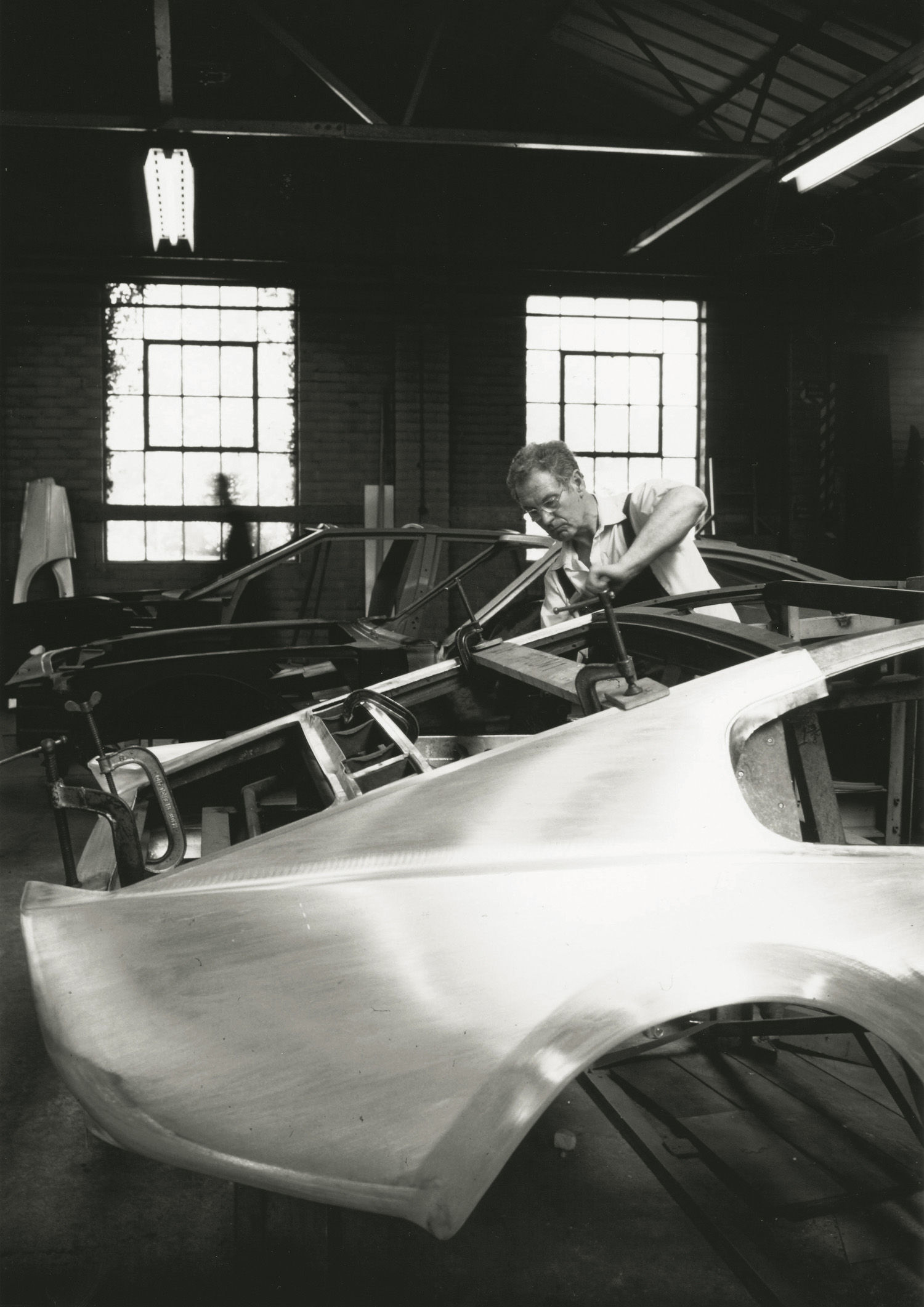



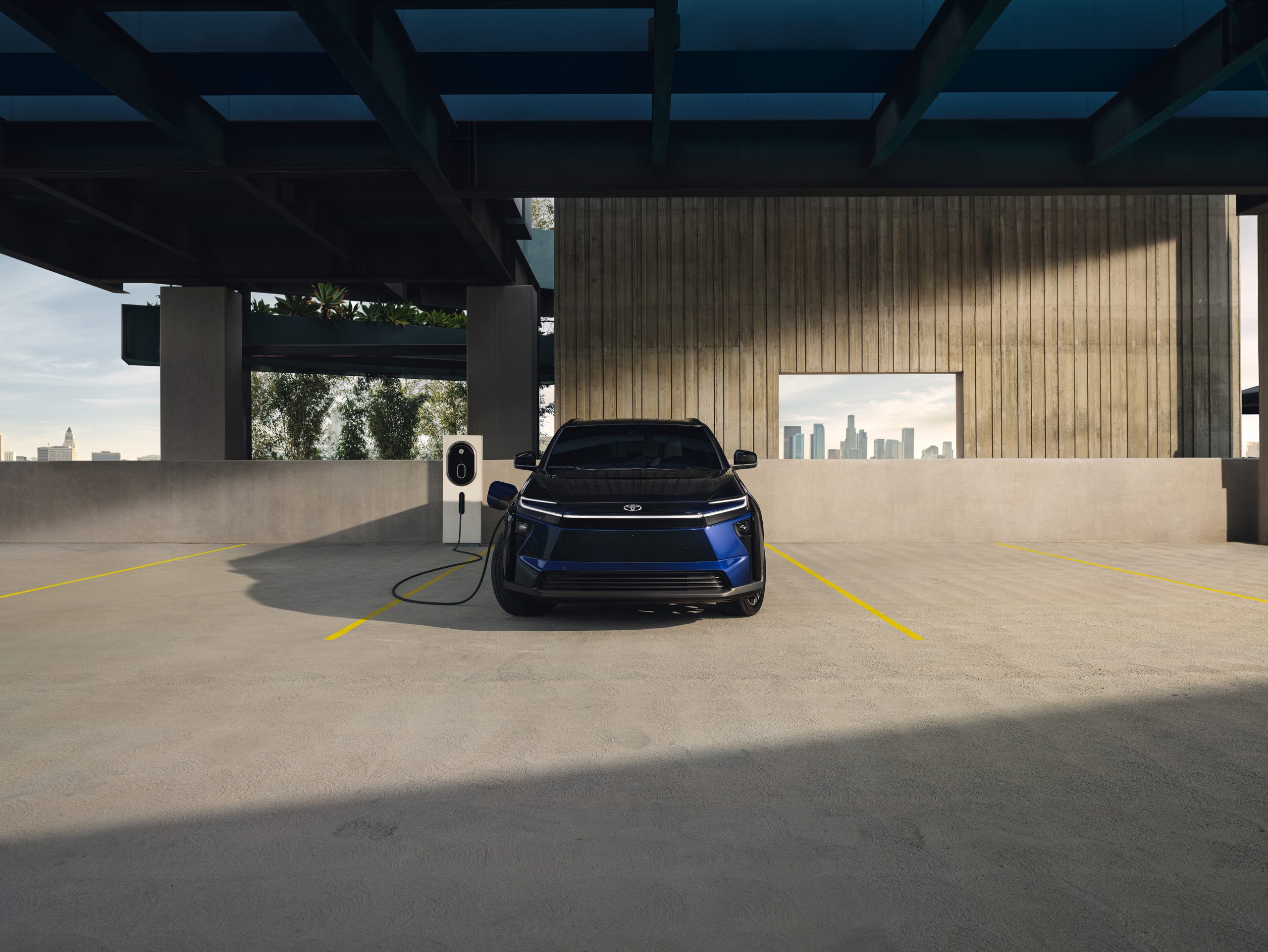
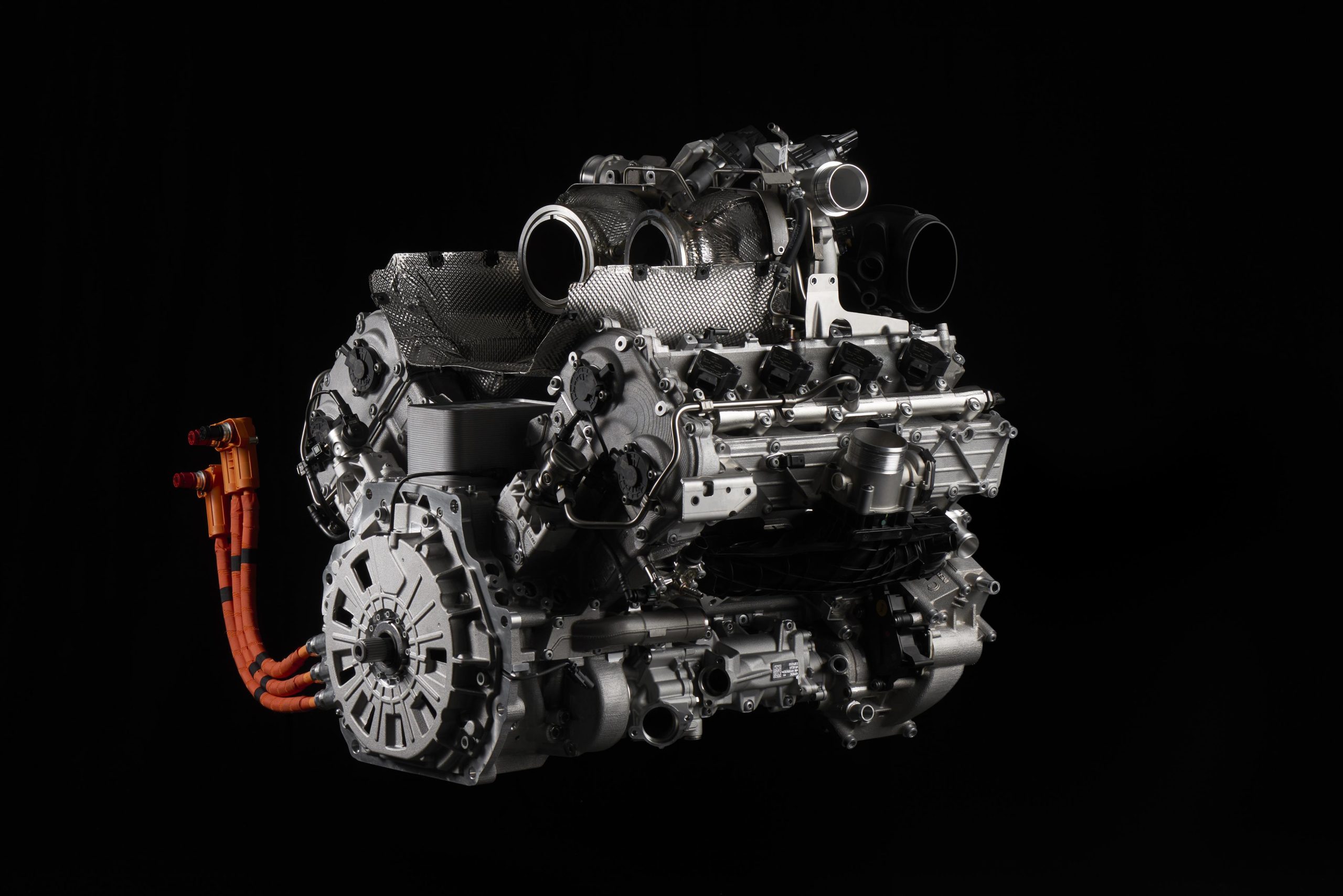


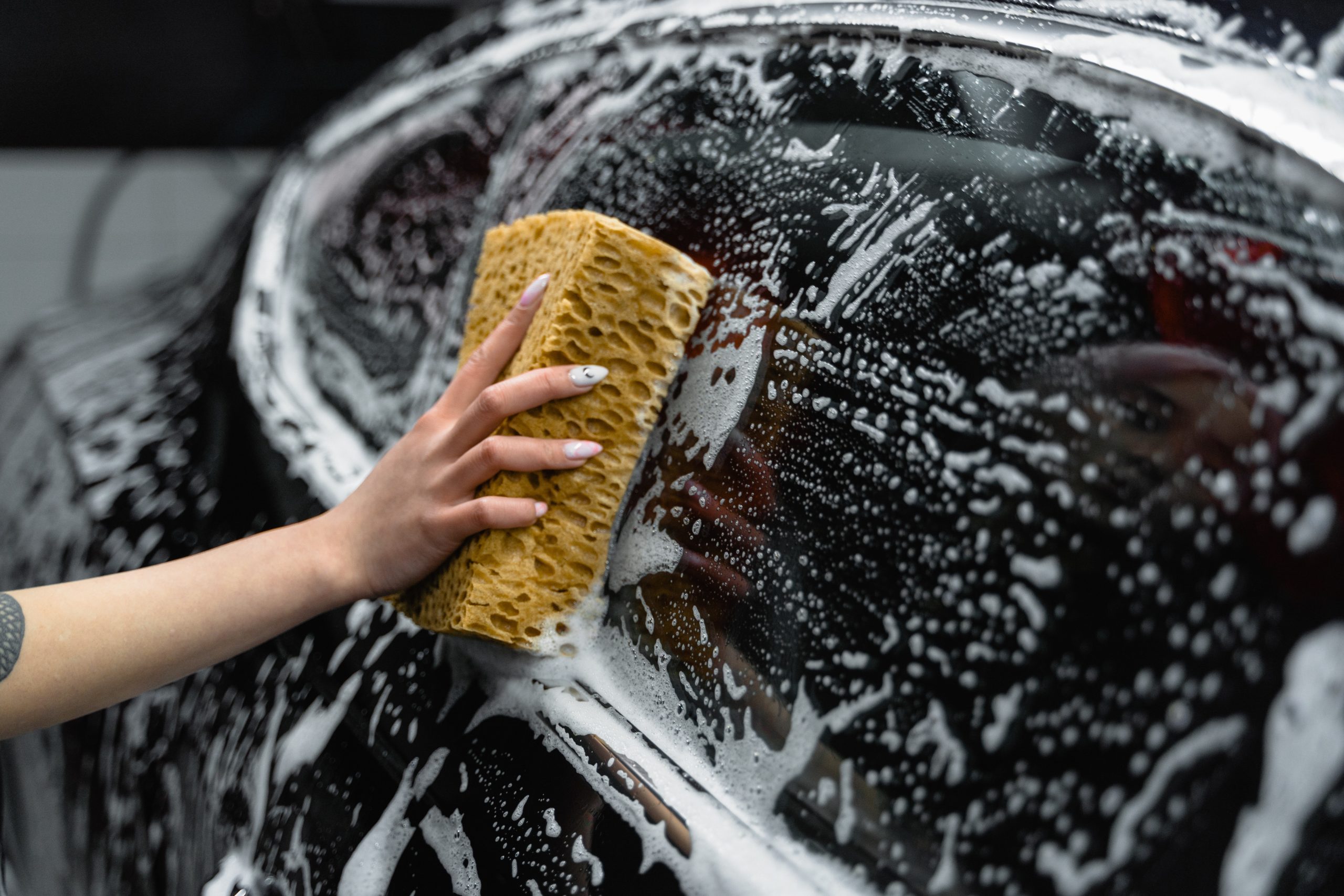

[…] gasoline or diesel fuel starts leaking from a vehicle’s fuel system, it may create an unpleasant gas smell inside the car. This leakage can occur from various points, such as cracked lines, loose fittings, or damaged […]
[…] make sure that you avoid smoking or using electronic gadgets near your car during this process since it can cause sparks capable of igniting leaked gas fumes from your […]
[…] you notice this peculiar smell coming from your car, it’s essential to investigate the root cause promptly. Failure to address underlying issues can […]
[…] with the potential sources of a burnt rubber smell in a car, the transmission or clutch could also malfunction leading to this particular scent. Furthermore, […]
[…] effectively get rid of the unpleasant smell from your car AC, understanding the common causes is crucial. This section “Common causes of car AC […]
[…] I was driving my sister’s car when I smelled a burning odour and immediately pulled over on the side of the road. The leaking coolant had […]